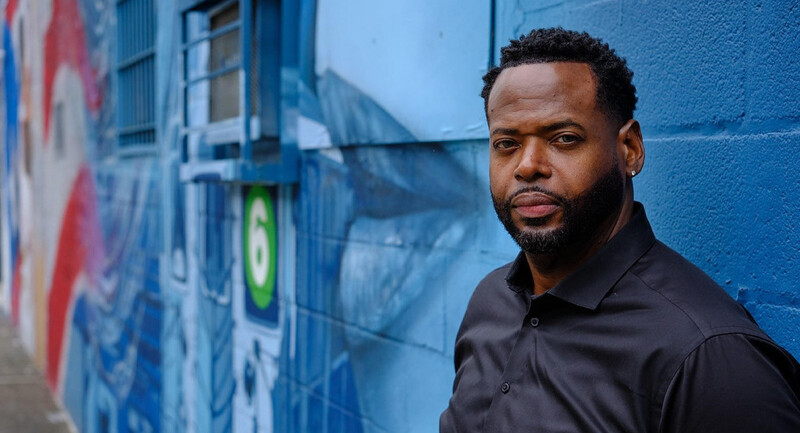Adaptive leadership helps educators take on challenge and change.
With the return to in-person instruction, schools must address several new and old challenges, including (but of course not limited to) equity, class size, technology, instructional loss, parent involvement, student and staff health, student behavior, and bullying. These challenges individually and collectively perplex schools—and did so long before the COVID-19 pandemic. So why do they continue to pose such a threat to school progress?
Often, school leaders aren’t clear about the methods and reasons they select to solve these challenges—which can add confusion to what is already a complex issue. Schools, and all organizations for that matter, need to adopt a problem-solving philosophy to ensure that challenges are being interpreted the same way by all employees and that structures are in place to address them systemically. The adaptive leadership philosophy is a highly recommended and research-based approach to problem-solving that can transform your school.
Ron Heifetz of the Cambridge Leadership Associates at Harvard University explained it beautifully:
“Adaptive leadership is a framework that helps individuals and organizations adapt and thrive in challenging environments. It is being able, both individually and collectively, to take on the gradual and meaningful process of change. It is about diagnosing the essential from the expendable bringing about a real challenge to the status quo.”
The Nuts and Bolts
Adaptive leadership is about adopting a mindset designed to build the resilience of individual school and district leaders to address complex organizational challenges. It is about looking beyond our own ambition and leading in a way that encourages change for the better in our organizations. For example, one theoretical goal could be having 100 percent of students believe that 80 percent of their teachers truly make an impact on them academically. What can be teased out of this goal speaks to the development of authentic relationship building for all students with an emphasis on equitable discipline, which is currently disproportionately lacking in national school culture data.
Adaptive leadership should not only improve the lives of teachers and employees but also the entire district, and be evidenced by student outcomes. In my work as an ASCD faculty member, I have coached school districts across the country—Houston ISD in Texas, West Bloomfield in Michigan, and Jericho Union in New York—to identify the importance of supporting the mental health of staff and students through the ongoing impact of the pandemic. Though each district approached this challenge differently, based on size and geographic location, at the core of each strategy the “right answer” resided within the staff and students.
Each district created communication streams to hear from stakeholder groups about their needs, then the leaders applied resources to equitably target issues that were causing the greatest angst (homework and grading policies, access to Wi-Fi, and alignment to community partners for basic needs, to name a few). These districts recognize that there is still a great deal to do, but they would not be where they are if they never addressed the challenge.
Technical and Adaptive Challenges
Your organization will encounter two types of challenges: technical challenges and adaptive challenges. Technical challenges can be solved by expert knowledge when the problem, definition, solution, and implementation are clear. Adaptive challenges, on the other hand, cannot. They require innovation and a change in the collective mindset of all employees. Also, adaptive challenges are based on the premise that everyone is a part of the problem and everyone must be a part of the solution.
Two Types of Organizational Challenges
Technical Challenges | Adaptive Challenges |
|---|---|
| Build a new school | Reform a school system |
| Register to vote | Run for political office |
| Buy stocks | Predict when to trade stocks |
| Create an emergency response plan | Evacuate during an emergency response |
Technical and adaptive challenges require the attention of leadership, but when adaptive challenges go unaddressed, it can have a devastating impact on a school or district. The acknowledgement and acceptance that everyone is part of the problem is the biggest lesson that needs to be learned to begin addressing adaptive challenges. These challenges are also the most complex and require thought-partners from outside the current school or district to support the development of a new path forward.
From Challenge to Change
So how does change actually happen? To create lasting change in an organization, you need an adaptive lens to model the behaviors of effective problem-solving. Through adaptive leadership, you can build the capacity of the people in your organization to feel comfortable in not always having the answer. Adaptive leadership teaches teams to be OK not having a finite conclusion to the current problem, but instead, to see the problem as a new chapter for continuous learning and growth.
Simply put, adaptive leadership is leading in a way that encourages and allows the people in your organization to adapt productively to the most complex challenges. It’s seeking out those opportunities to grow as an organization and applying adaptive principles to challenges that will produce sustained change.
The Adaptive Leadership Recipe
To start, you need to create a climate for change by adopting a bold and ambitious vision to address a complex challenge, like tackling mental health or student satisfaction with teacher impact. The next step is to create a sense of urgency and select a change process like John Kotter’s 8-step process for leading change. Then recruit a coalition of staff members who will help execute the vision while you identify and celebrate the quick wins that will, in turn, build the confidence in your team to embrace change and more complex challenges.
Once you have a working climate that is ripe for change, it’s time to engage and enable the entire school or district. To do this, you must adequately communicate your vision, empower people into action, and attack those quick wins, such as setting a goal for all adults in the school to learn the first and last names of all students in the building within the first 30 days of the start of classes. With that in place, you can implement and ultimately sustain change. In time, the change process will be embedded in your school or district’s culture and will build the capacity of staff to problem-solve throughout the organization.
To effectively implement, manage, and sustain change, leaders need to have a reflective process to determine if the outcomes that they intended are evident. They can self-assess and evaluate the progress of leading the adaptive challenge by using the following as a checklist.
The Adaptive Leadership Checklist
- Change Management: I can strategically move an organization from the current state to a desired future state.
- Continuous Improvement: I can consistently improve services or processes to the highest standards.
- Diversity, Equity, and Inclusion: I can make diverse employees, students, and stakeholders feel valued, welcomed, integrated, and included.
- Problem-Solving: I have the ability to work with colleagues to define and determine the cause of a problem: identify, prioritize, and implement a solution.
- Reflection and Continuous Improvement: I can provide a collective, dynamic system of reflection and feedback that directs the learning of staff within an organization.
- Strategic Thinking: I can take a disciplined approach to produce fundamental decisions and actions shaping the nature and direction of an organization’s activities.
- Systems Thinking: I can understand how systems behave, interact with their environment, and influence each other.
To be successful in this process, a leader needs to have high expectations of all staff while being savvy enough to treat them all differently.
Learn how our ASCD faculty can help you develop your leaders.





